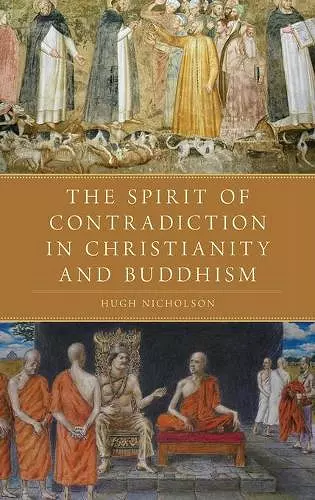The Spirit of Contradiction in Christianity and Buddhism
Format:Hardback
Publisher:Oxford University Press Inc
Published:17th Mar '16
Currently unavailable, and unfortunately no date known when it will be back

In The Spirit of Contradiction in Christianity and Buddhism, Hugh Nicholson examines the role of social identity processes in the development of two religious concepts: the Christian doctrine of Consubstantiality and the Buddhist doctrine of No-self. Consubstantiality, the claim that the Son is of the same substance as the Father, forms the basis of the doctrine of the Trinity, while No-self, the claim that the personality is reducible to its impersonal physical and psychological constituents, is a defining tenet of Theravada Buddhism. Both doctrines are massively counterintuitive in that they violate our basic assumptions and understandings about the world. While cognitive approaches to the study of religion have explained why these doctrines have difficulty taking root in popular religious thought, they are largely silent on the question of why these concepts have developed in the first place. Nicholson aims to fill this gap by examining the historical development of these two concepts. Nicholson argues that both of these doctrines were the products of hegemonic struggles in which one faction tried to get the upper hand over the other by maximizing the contrast with the dominant subgroup. Thus the "pro-Nicene" theologians of the fourth century developed the concept of Consubstantiality in an effort to maximize, against their "Arian" rivals, the contrast with Christianity's archetypal "other," Judaism. Similarly, the No-self doctrine stemmed from an effort to maximize, against the so-called Personalist schools of Buddhism, the contrast with Brahmanical Hinduism, symbolized by its doctrine of the deathless self. In this way, Nicholson demonstrates how, to the extent that religious traditions are driven by social identity processes, they back themselves into doctrinal positions that they must then retrospectively justify.
a wonderful addition to a growing body of scholarship on comparative theology that raises provocative and vital questions about the formation of theology and the creativity of theologians. * Carol S. Anderson, Journal of Religion *
ISBN: 9780190455347
Dimensions: 165mm x 239mm x 33mm
Weight: 601g
344 pages